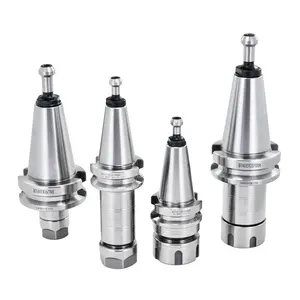

Phay Cnc Mâm Kẹp Công Cụ BT30 BT 40 Bt50 ER32 SK10 SK13 SK16 Collet Chuck Công Cụ Chủ Cho Máy Phụ Kiện


Bwin K12-100 Nhỏ Nhỏ Tự Định Tâm Máy Tiện Chuck 150 Mm 300Mm 1000Mm 4 "5" 14 "4 Hàm Máy Tiện Chuck 280M






















Alibaba.com cung cấp một số loại sk10 collet chuck chuck có sẵn để bán bởi các nhà cung cấp đáng tin cậy, đảm bảo các sản phẩm chất lượng cao và kết quả vượt trội. Chúng được chế tạo để sử dụng lâu dài, đảm bảo độ bền và hiệu suất tối ưu. Các sản phẩm được tìm kiếm phổ biến nhất là sk10 collet chuck chuck, các phụ kiện máy công cụ khác và giá đỡ công cụ. Từ xây dựng đến sử dụng hàng ngày, chúng có sẵn cho các loại ứng dụng khác nhau với độ dài và kích thước khác nhau.
sk10 collet chuck chuck được sản xuất tuân thủ các tiêu chuẩn công nghiệp bằng cách sử dụng nguyên liệu chất lượng cao và công nghệ mới nhất. Thiết kế dễ sử dụng và thoải mái cho phép vận hành thuận tiện để hoàn thành các công việc khoan nhanh chóng. Thiết kế kiểu dáng đẹp bao gồm một số tính năng như lưu trữ và sử dụng dễ dàng. Thiết kế tùy chỉnh được thiết kế để tạo sự thuận tiện và hiệu suất tối ưu.
Mỗi sản phẩm được thiết kế cho một mục đích cụ thể và thể hiện hiệu suất vượt trội. Danh mục toàn diện với thông tin chi tiết về từng sản phẩm có sẵn cho người mua hàng. Từ mâm cặp từ trường vĩnh cửu đến máy khoan không cần chìa chất lượng cao, Alibaba.com cung cấp nhiều loại sk10 collet chuck chuck cho người mua sắm. Nó cũng cung cấp tùy chọn lựa chọn vật liệu của sản phẩm.
Các lựa chọn từ bình dân đến cao cấp sk10 collet chuck chuck, mọi người mua sắm đều có thể tìm thấy một mặt hàng phù hợp với túi tiền của mình. Với nhiều nhà cung cấp trên toàn thế giới, Alibaba.com là nơi tuyệt vời để tìm kiếm những mặt hàng thích hợp nhất cho nhu cầu của người mua sắm. Từ các dự án cải tạo nhà dễ sử dụng đến các dự án xây dựng lớn, chúng đều có sẵn với mức giá hàng đầu trong ngành và hứa hẹn mang lại hiệu quả tối ưu.